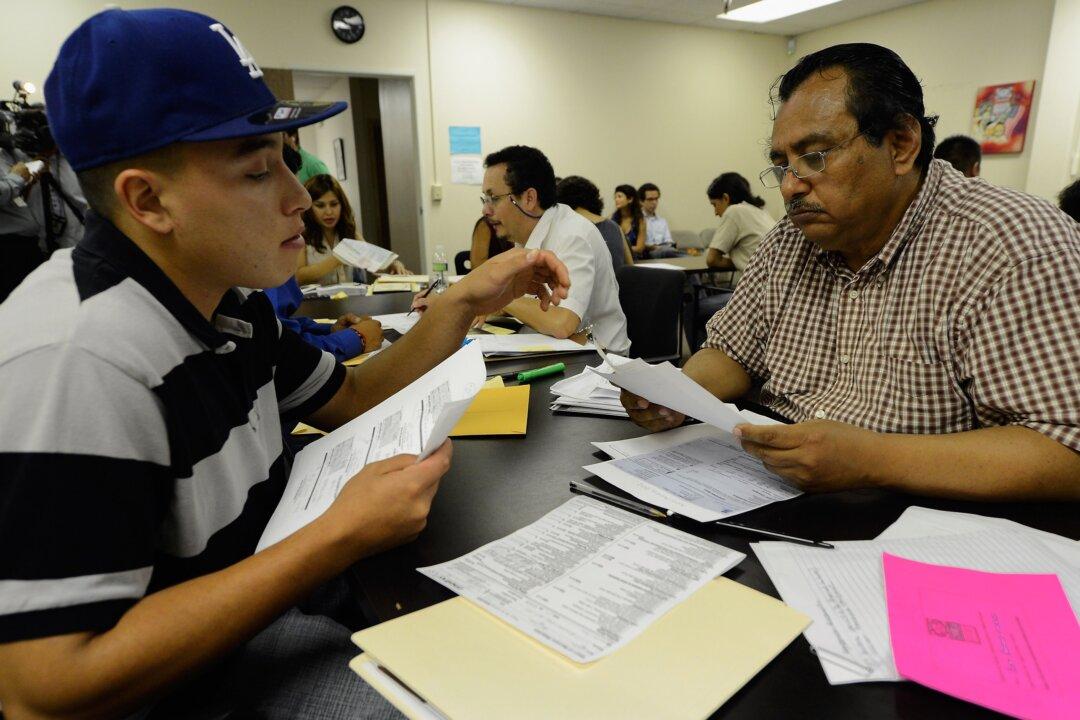The thorniest, most emotionally charged immigration issue confronting the president is DACA, or Deferred Action for Childhood Arrivals.
More than 780,000 people who entered the country illegally before they turned 16 have been given DACA status since former President Barack Obama introduced the program in 2012.
For those eligible, DACA gives work authorization and a renewable, two-year reprieve from deportation. Eighty-one percent of the recipients are Mexican.
So far, DACA recipients have avoided President Donald Trump’s no-nonsense enforcement of federal immigration laws, but the issue is bubbling up again as 10 state attorneys general prepare to challenge it in court if Trump does not phase it out by Sept. 5.
The state attorneys general attest that similar programs have already been blocked for being unlawful.
On June 23, 2016, the Supreme Court upheld a decision to halt Obama’s 2014 attempt to expand DACA and introduce DAPA (Deferred Action for Parents of Americans).
DAPA would have granted temporary deportation reprieve and work authorizations to an estimated 3.6 million illegal immigrants who had a child that was a U.S. citizen or lawful permanent resident, and met certain other criteria.
In June this year, Trump ended the DAPA amnesty altogether, but left DACA alive, indicating he wasn’t going to rip the Band-Aid off entirely. In April, Trump said DACA recipients could “rest easy.”
But the state attorneys general say current DACA permits should be left to expire and no new ones should be issued.
“The Executive Branch does not have the unilateral power to confer lawful presence and work authorization on unlawfully present aliens simply because the Executive chooses not to remove them,” the group said in a June 29 letter to Attorney General Jeff Sessions.
Texas Attorney General Ken Paxton, who is leading the charge against DACA, was joined on the letter by the attorneys general of Alabama, Arkansas, Idaho, Kansas, Louisiana, Nebraska, South Carolina, Tennessee, and West Virginia, as well as Idaho Gov. C.L. Otter.
Options
A White House spokesperson confirmed to The Epoch Times that the DACA program is “currently under review,” in an email on Aug. 28.
The spokesperson reiterated that “only Congress can legislate a permanent fix for the situation DACA recipients face.”
Keeping the program going would kick the can further down the road, and some form of the now-defunct DREAM Act would have to be revived by Congress to enact a permanent solution.
Alternatively, Trump could end the program at any time. Or he could sit tight until it goes to court after Sept. 5 and see what happens. In that scenario, an outcome against DACA seems “very likely,” according to Julia Gelatt, senior policy analyst with the Migration Policy Institute, a Washington think tank.
The case would go to the same Texas judge that ruled an injunction against DAPA and the expanded DACA last year, and it would eventually head to the Supreme Court.
“It’s a really difficult decision,” said Gelatt. “[Trump’s] really in a tough position with the Sept. 5 deadline hanging over him.”






